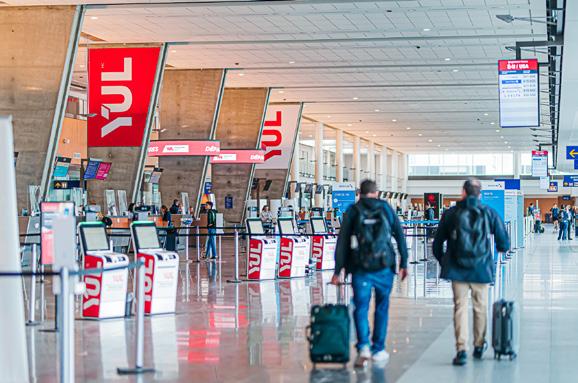
6 minute read
EVOLVING CANADIAN AVIATION
from Air Transat
Writer:
There is certainly a lot of potential in the Canadian airline market for a variety of reasons. One of them is the dynamism of the Canadian economy and society, and another more obvious reason is the country’s vast size. Aviation is a necessity here; it takes just about an hour longer to fly from Montreal to London than to Vancouver!”
Montreal is a strategically located hub for aviation. Quebec’s position on the east side makes it a prime Canadian location for transport and logistics of all kinds, ranging from extensive harbor and shipping connections to air freight and connecting flights, all of which have free range across the Atlantic to Europe, as well as major urban hubs in the US. It is the size of Canada that makes aviation so critical across the country, and key players in the space are recognizing the true potential of the industry. One such player is Air
Transat A.T. Inc (Air Transat).
Based in Montreal, Air Transat is Canada’s number one leisure airline, employing close to 5,000 members
About Air Transat
Founded in Montreal 35 years ago, Air Transat is a leading leisure travel brand. Voted North America’s Best Leisure Airline by passengers at the 2022 Skytrax World Airline Awards, it flies to international, transborder and Canadian destinations. It is renewing its fleet with the greenest aircraft in its category as part of a commitment to a healthier environment, knowing that this is essential to its operations and the magnificent destinations it offers. Air Transat is a business unit of Transat A.T. Inc (TSX: TRZ).
of staff across its entire operation. The company, part of the larger Transat group, flies to international destinations in the Americas and Europe, offers domestic and connecting flights, and carries more than five million passengers every year.
“We have achieved worldwide recognition as a holiday travel provider and been voted North America’s Best Leisure Airline by passengers at the Skytrax World Airline Awards last year,” COO MarcPhilippe Lumpé tells us. “We fly to both international and Canadian destinations, striving to serve our customers with enthusiasm and friendliness at every stage of their trip or stay, emphasizing safety throughout.”
On top of this people-centered focus, Air Transat has been Travelife Certified since 2018, renewing its fleet with the greenest aircraft in its
Inspiring Meaningful Connections with ADM Aéroports de Montréal
our travelers to the most popular destinations around the world, notably with the collaboration of a leading carrier like Air Transat. Currently, 117 international, US and Canadian destinations are serviced via 30 carriers operating in Montréal. In addition, 15 international destinations will relaunch or debut in the coming months, propelling Montréal even further.
NA: Could you expand on your partnership with Air Transat?
North America Outlook (NA): Firstly, tell us a bit about Aéroports de Montréal (ADM).
Stéphane Lapierre, Vice President, Airport Operations and Air Services Development, ADM (SL): As the airport authority for the Greater Montreal area, ADM is responsible for the management, operation and development of YUL MontréalTrudeau International Airport and YMX International Aerocity of Mirabel.
ADM intends to succeed in its various business segments – airport, real estate and commercial services – and to develop each of its two sites to their full potential. To that end, YUL acts as a domestic, transborder and international passenger hub, while YMX is an all-cargo airport and a world-class aerospace and innovation hub. YUL handles more than 20 million passengers and 200,000 tons of cargo annually through its two sites.
Montréal-Trudeau International Airport and International Aerocity of Mirabel are major centers of economic activity and development drivers for the Greater Montréal area.
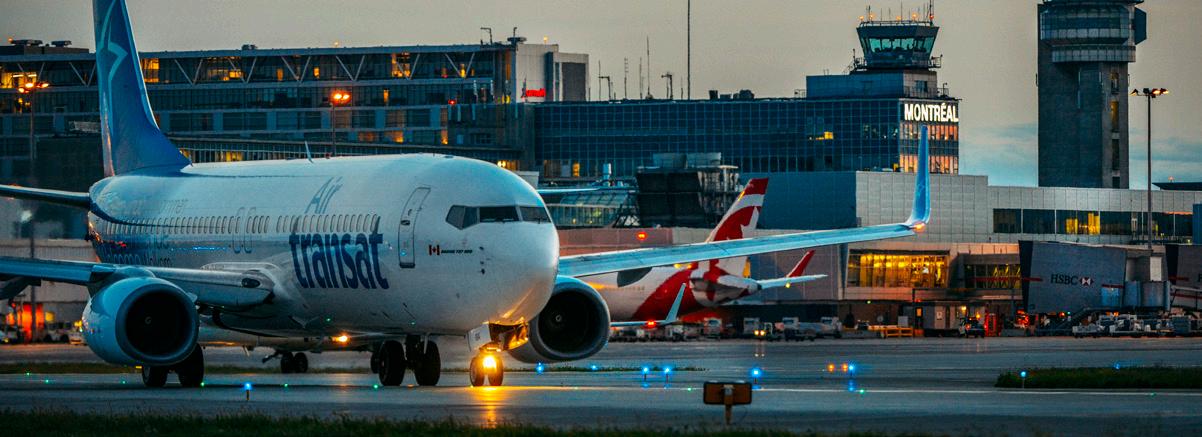
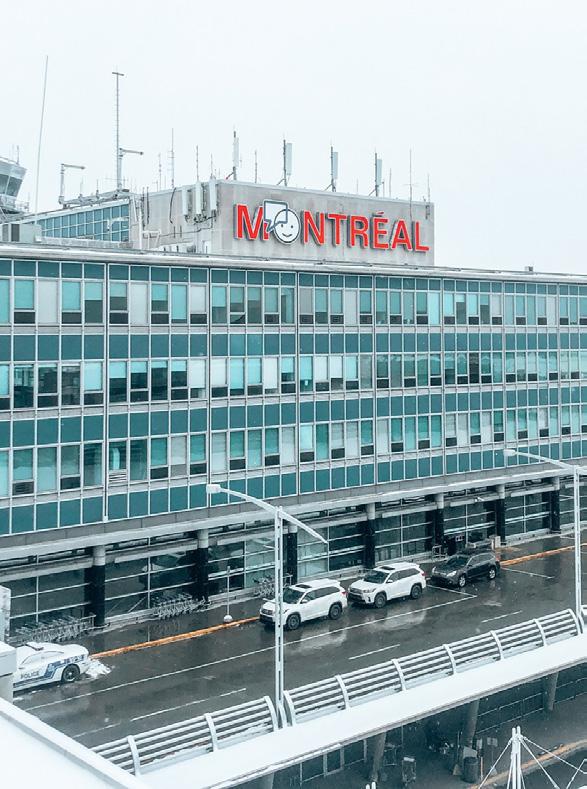
NA: How does ADM inspire meaningful connections?
SL: We are privileged to live and work in a vibrant, friendly city like Montréal. YUL is the gateway to a dynamic metropolis. It is a community that serves the community. We are proud to be an international air transportation hub and our air services development team at MontréalTrudeau works hard throughout the year to connect Montréal and
SL: A Quebec source of pride, Air Transat has been part of the history of Montréal and Mirabel airports since its first inaugural flight to Acapulco in 1987. Since ADM’s creation in 1992, the two organizations have worked together to consolidate the city’s place in the tourism and economic industry, offering quality services and enabling the Montréal and Quebec communities to travel to destinations of choice. For the past nine years, ADM and Air Transat have collaborated to run the Premium Kids program, providing a unique day for children with autism spectrum disorder (ASD) or functional limitations to familiarize themselves with the airport process.
NA: What are ADM’s priorities for the future?
SL: By deciding to put sustainability at the center of its priorities, ADM has made a commitment to go beyond the basics to do its part in the transition of the airline industry. Through strong employee engagement and ongoing dialogue with all of its stakeholders, we have developed a rigorous sustainability plan that will allow us to positively impact our community, both economically and socially, while reducing our environmental footprint. We continue to work simultaneously on various projects that will provide a safe, accessible, and modern environment for our travelers and the airport community, including the construction of a station that will be part of the Réseau express métropolitain (REM) – an automated light metro network – which will offer a direct connection between YUL and downtown Montréal in about 25 minutes. Other projects like the rehabilitation of runways, modernization of the control tower and optimization of operational processes will support our focus on enhancing customer experience at YUL. category as part of a commitment to a healthier environment, knowing that this is essential to its operations and the magnificent destinations it serves.
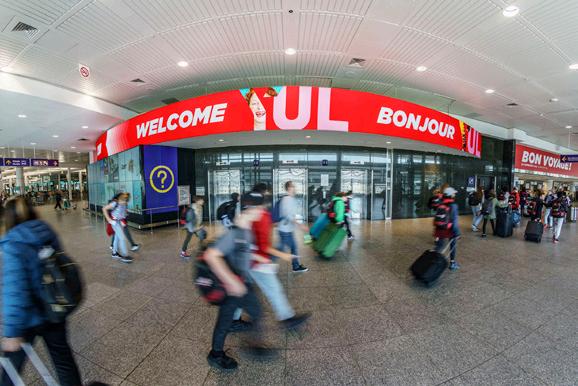
With the summer season approaching, we are planning the next few months collaboratively with all our partners in the airport community, including carriers such as Air Transat, to ensure that we provide a pleasant experience for all travelers. The recovery of the airline industry in 2022 has not been without its challenges, but many efforts have been made with all stakeholders to improve customer experience and fluidity in preparation for summer 2023.
A Life On The Airline
For Lumpé, the aviation sector is one of continuous evolution and great promise, requiring a keen eye for business adaptation. It is also an industry that he has worked in throughout his entire professional career.
“I started off as an airline pilot for Lufthansa, Airbus 320 family, and I did this while studying for a master’s degree in Economics and Business Administration in Germany, moving on to a PhD in Leadership and Organisation at Cranfield University in the UK,” he says.
“I took a life-changing decision to join Air Berlin in 2006, which at the time was the second-largest German carrier for a number of years. At Air Berlin, I held several roles but was primarily the Senior Vice President of Quality, Safety and Corporate Process Management.”
Following this, Lumpé was hired by business consultation firm Kearney, as a consultant for approximately three years, before this role led him back into the airline industry to work for Thomas Cook Group (Thomas Cook).
At Thomas Cook, Lumpé held three roles, the first in fleet management regarding aircraft purchasing, moving on to a senior management position to support the program management office at the company headquarters in London, UK, and thereafter becoming a Senior Program Manager in the Group Maintenance Organisation.
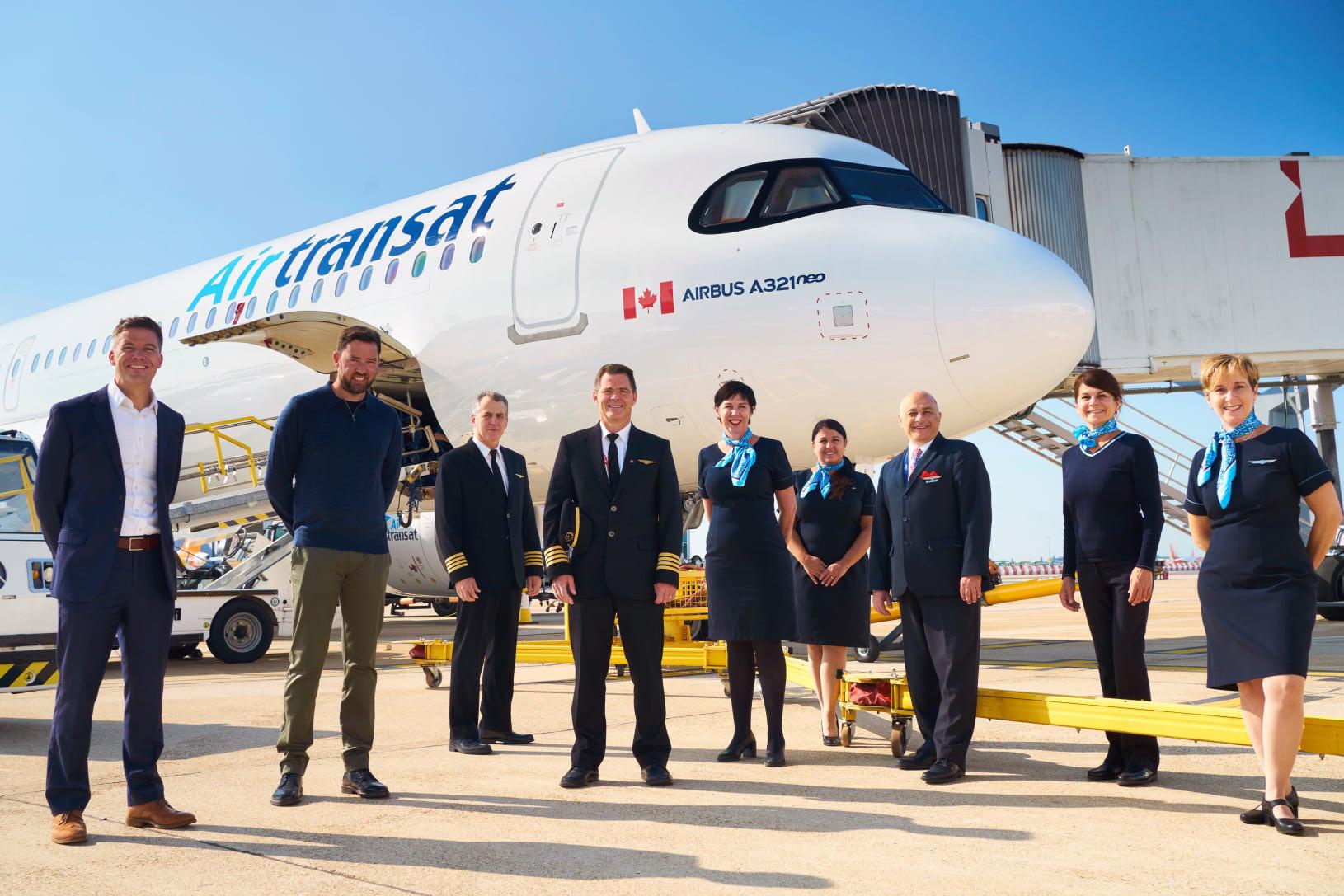

“I was then contacted by the COO of Qatar Airways whom I had known from my earlier career, and he needed somebody to help him set up the operations center in Qatar,” Lumpé explains. “So, I took a position in Qatar that led me to be Vice President of the Integrated Operations Center, leading a huge transformation program that included the implementation of a new software suite for the operational management of the airline.”
After this, Qatar Airways asked Lumpé to take control of the crew resources department, managing all cabin and flight crew amounting to around 18,000 people. This also involved putting into action the
AIR TRANSAT - CORPORATE RESPONSIBILITY
Air Transat is committed to conducting its business in a sustainable manner, both in Canada and abroad.
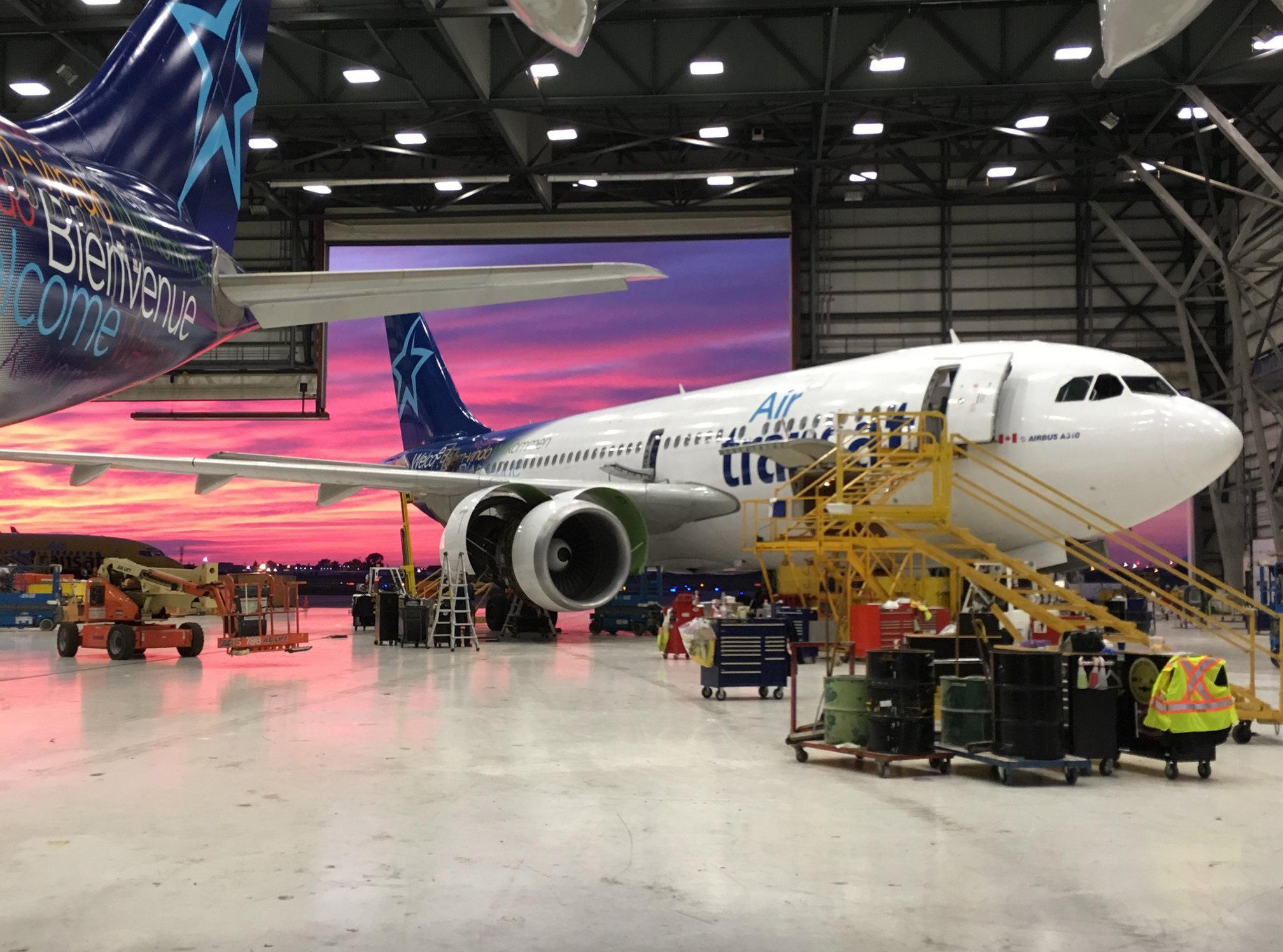
The three pillars of action:
Planet: To reduce its environmental impact, Air Transat focuses on decarbonizing its activities, reducing waste – especially single-use plastic – and preserving biodiversity. The company’s decarbonization plan includes three levers to reduce emissions from its activities: renewing and modernizing its fleet, improving operational efficiency and air traffic management, and increasing the use of sustainable aviation fuels (SAF).
People: With people at the core, Air Transat aims to foster a diverse, equitable and inclusive work environment, to provide an accessible client experience, and to maximize its positive impact on its local and global communities.
Sustainable practices: As a leader in the tourism industry when it comes to sustainable development and the first major international tour operator to be Travelife Certified for all its activities, Air Transat integrates corporate responsibility in all its practices. The company is committed to ensuring good corporate governance, to communicating its progress transparently and to engaging its value chain.


